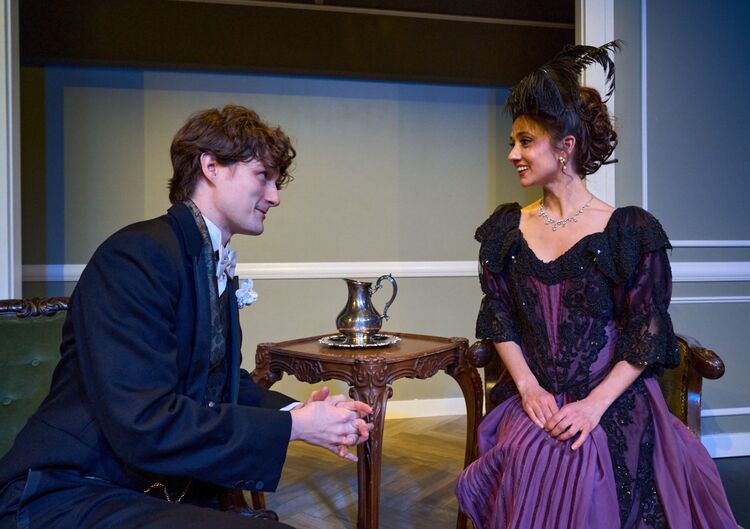When the imperatives of the law clash with the dynamic push and pull of power politics, the result is often an unseemly public mess.
In the 2000 presidential contest Vice-President Al Gore and George W. Bush ended up within a few hundred votes of each other in Florida, and the overall national result hinged on the declaration from Miami.
Complicating matters, the governor of that state was Mr. Bush’s younger brother, Jeb, and Katherine Harris, the secretary of state charged with ensuring an impartial election, served as co-chair of the Bush for President election committee.

The electronic result favored Bush by a whisker, but Gore called for a hand recount. Young readers may not remember the heated controversy about “hanging chads” in punch card ballots while the whole counting system clogged up.
The Supreme Court expressed a strong preference for a local resolution for the controversy, but eventually, the justices agreed to intervene and they voted along party lines with the five appointed by Republican presidents favoring Bush and the four nominated by Democrats endorsing the Gore position.
It is only a mere 20-plus years since that Florida imbroglio, but many commentators argue that the deep polarization and unforgiving divisions between the two parties since then are mainly rooted in that controversial outcome. The consequences included a disastrous invasion of Iraq, which, very likely, would not have happened in a Gore administration.
On the other hand, Al Gore’s patriotic decision to concede, despite the widespread anger and frustration in his party, stands in glaring contrast to the man who clearly lost in 2020 but is still spouting about a fraudulent election which multiple judges rejected out-of-hand.
Governor Andrew Cuomo also fell foul of the law last year. Some women credibly accused him of unwelcome sexual touching and sometimes inappropriate and demeaning conversations.
Letitia James, the New York State attorney general, also a Democrat, initiated a major inquiry into his behavior, leading to Cuomo’s resignation under pressure as various women complained openly about his unwanted advances.
However, recently, the Oswego district attorney, Gregory Oakes, joined three previous DAs in refusing to prosecute Cuomo because his actions, while deemed regrettable, were not illegal. Still, nobody can give Cuomo his job or reputation back. The most recent report about the defrocked governor suggests that he is planning to oppose Ms. James for her job at the next election.
The legal system and politics clashed in a remarkable and memorable way in Ireland in the 1980s.
Malcolm MacArthur was known in social circles in Dublin as an eccentric man who didn’t like work but enjoyed a good lifestyle, thanks to a family inheritance. In the early 80s he ran out of money and since he didn’t fancy going to a job every day, he determined he would steal to get by.
He decided that he needed a gun for this purpose, so he agreed to purchase one from a man named Donal Dunne in Edenderry, a midland town about fifty miles from the capital. He needed a car and found one owned by a 27-year old nurse, Bridie Gargan, who was sunning herself in the Phoenix Park on a beautiful July day.
She did not agree to part with her car, so he bludgeoned her brutally with a hammer and put her in the back seat of the automobile. A nearby ambulance driver, thinking that he was dealing with a medical emergency, led him with siren blaring to the nearest hospital where McArthur deposited Miss Gargan’s lifeless body. A few days later he proceeded to Edenderry where Mr. Dunne offered him the shotgun. McArthur liked it, but lacking the finance to cover the cost, he shot and killed Dunne before heading back to Dublin.
He was friendly with Patrick Connolly, the Irish Attorney General, who agreed to let him move into his South County Dublin apartment for a while until he found lodging elsewhere. However, a few days later, the police arrested him in the AG’s home after Mr. Connolly had headed off for a planned holiday in the United States. McArthur pleaded guilty to Bridie Gargan’s cruel murder and the police decided that sufficed for a life sentence. He was released in 2012.
The taoiseach at the time, Charles Haughey, had to explain to an agitated population how the man who savagely killed two unsuspecting adults ended up in the house of his Attorney General, the chief law-enforcement officer in the country. It was political dynamite for him.
In a memorable speech he described the murderous events as "grotesque, unbelievable, bizarre and unprecedented." There was talk that McArthur and Connolly were in some kind of gay relationship. This heightened the sensational story but it turned out to be unfounded.
Conor Cruise O’Brien, a leading opposition figure in parliament, sought to diminish the prime minister’s handling of the situation. Focusing on the four adjectives that Haughey used, he coined the acronym GUBU, which is still heard in Ireland to describe a highly-unusual and ironic happening.
The Attorney General returned early from his vacation, realized that his position was politically untenable and resigned. These sensational events formed the basis of John Banville's fine 1989 novel, "The Book of Evidence."
The GUBU acronym could certainly be used to describe Donald Trump’s dealings with the law. He is being sued, or he is suing opponents of all kinds in dozens of cases.
In Georgia, the Fulton Country district attorney, Fani Willis, has opened a criminal investigation on Trump, alleging that he illegally tried to alter the outcome of Georgia’s votes in the 2020 presidential election. The main focus in this case has been on a phone call the then-president placed to Secretary of State Brad Raffensperger, a Republican, during which he pleaded with him to find enough votes to overturn his narrow defeat in the state.
Raffensperger explained that there was no evidence of any voting chicanery and that Joe Biden had won the election fairly. Trump persisted, “So look, all I want to do is this, I just want to find 11,780 votes because we won the state.”
Willis has empaneled a special grand jury to hear the evidence. They will decide whether to move the case to a regular grand jury, or they could determine that the charges against the former president lack merit and should be dismissed.
The second case, involving an alleged breach of civic statutes, comes from Letitia James who claims, “we have uncovered significant evidence which suggests that Mr. Trump and his organization falsely and fraudulently valued multiple assets and misrepresented those values to financial institutions for economic benefits.”
Ms. James is working closely with the Manhattan district attorney, Alvin Bragg, who is dealing with the same range of accusations but emphasizing tax fraud. He is alleging felonious actions which may lead to prison time if Mr. Trump is convicted.
Meanwhile, Newt Gingrich, former House Speaker and current Republican strategist, warned that if his party wins a majority in the House of Representatives in the November elections, it may well decide to jail the Democrats leading the committee investigating the January 6th insurrection.
Newt is always good for GUBU statements, but even these asinine comments were bettered by an official pronouncement from the Republican National Committee that the Capitol riots should not be viewed as illegal behavior, but as “legitimate political discussion.”








